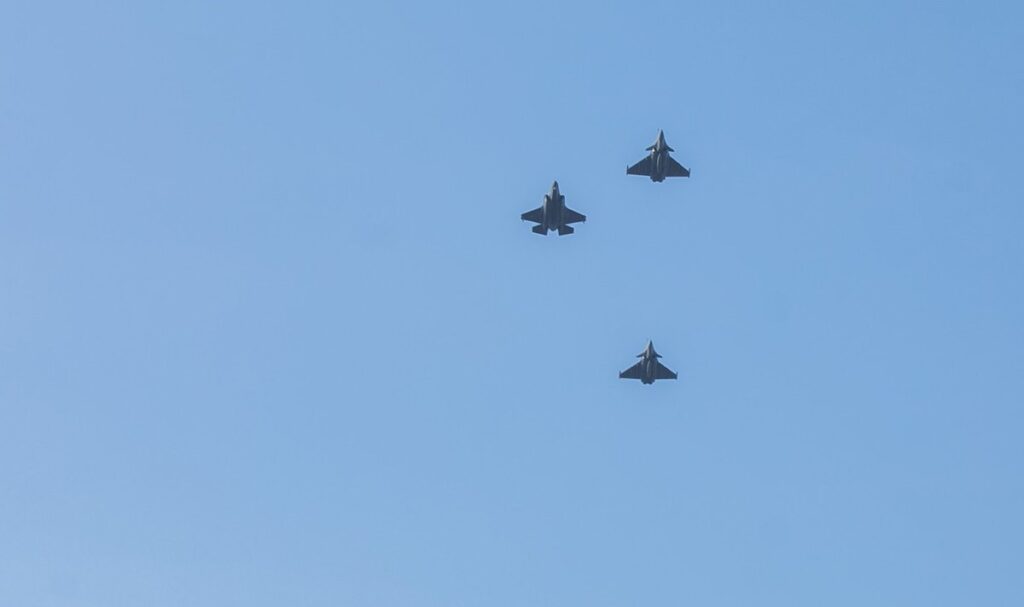NATO fighter jets conducting the Baltic Air Policing Mission in Lithuania were scrambled seven times between June 16 and June 18 to identify and escort Russian military aircraft flying in international airspace, according to the Lithuanian Ministry of National Defense.
The incidents mark a continued pattern of Russian aerial maneuvers in proximity to NATO airspace, increasing regional alertness amid already heightened tensions between Russia and the Alliance.
On June 16, NATO jets were deployed to identify Russian SU-24MR and SU-30SM tactical aircraft that were flying from mainland Russia into international airspace before returning. A TU-134 transport aircraft operating between Kaliningrad and mainland Russia was also tracked and identified.
The following day, June 17, NATO scrambled jets twice. The first mission was in response to a TU-142 maritime patrol aircraft and two SU-30 fighter jets, which were observed flying in international airspace from and back to Russia. Later that day, another TU-134 on a route from the Russian mainland to Kaliningrad was intercepted.
On June 18, NATO forces launched three more intercepts. A TU-214, which had taken off from Kaliningrad and was en route to Russia’s mainland, was tracked in international skies. In another flight path, two SU-27s originating from Kaliningrad were observed and escorted back. That same day, two SU-30 fighter aircraft were also intercepted while flying from mainland Russia and returning on a similar path.
According to Lithuanian defense officials, all Russian aircraft were flying in international airspace, but several lacked flight plans or failed to communicate with air traffic controllers — common factors prompting NATO’s air policing response.
“Every intercept is a reminder of the strategic importance of maintaining a vigilant posture in the region,” said a NATO official in Vilnius. “Our mission remains defensive, but it is resolute.”
The NATO Baltic Air Policing Mission was established in March 2004, shortly after Lithuania, Latvia, and Estonia joined the Alliance. Under the program, member nations on a rotating basis deploy fighter aircraft to safeguard Baltic airspace, as the three nations lack sufficient air defense capabilities of their own.
While such interceptions are not unusual, the frequency of Russian flights over the three-day period signals a renewed assertion of military presence near NATO territory. The Lithuanian Ministry of National Defense did not report any violation of sovereign airspace but emphasized that NATO remains on high readiness.
As geopolitical tensions continue to simmer across Europe’s eastern flank, NATO allies have reiterated their commitment to collective defense, especially in the face of increased Russian military activity in the Baltic and beyond.
Amnewsworld will continue monitoring developments across the region.


